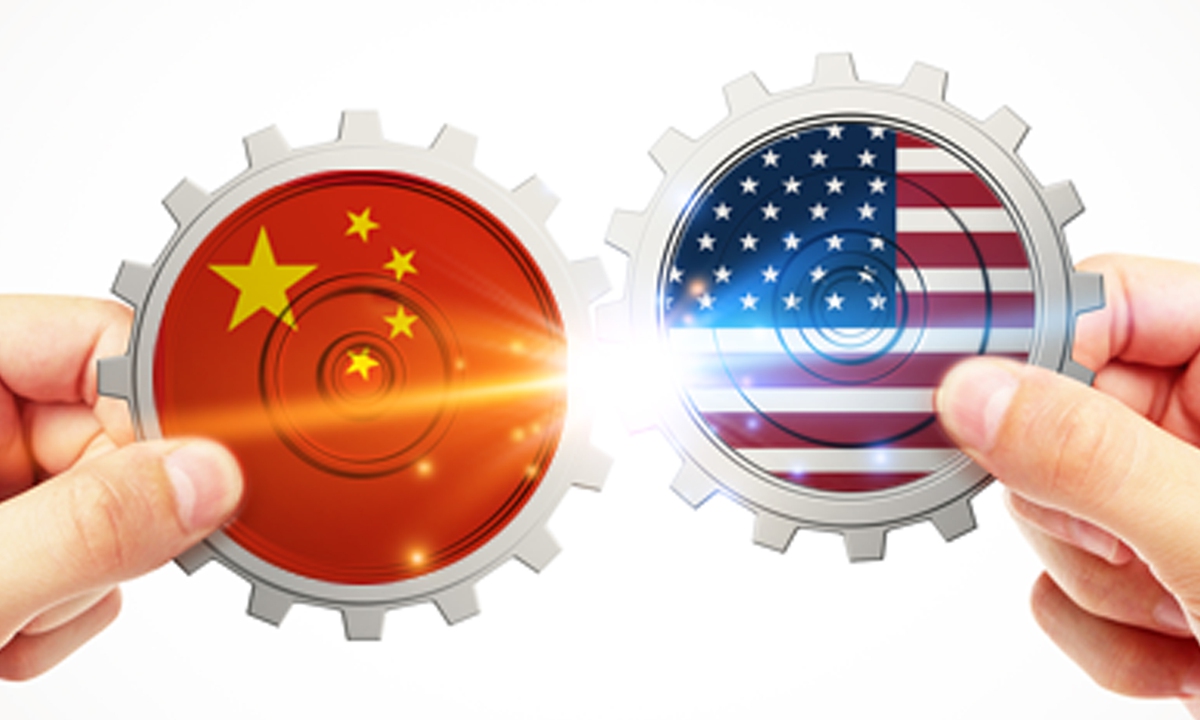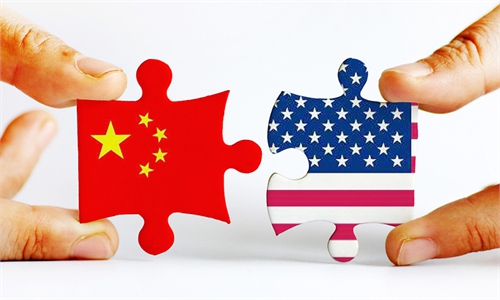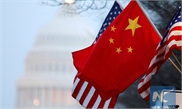China remains a top global priority, growth driver for US firms despite strained ties: AmCham survey

China-US Photo: GT
China remains a top global priority for many members of American Chamber of Commerce in China (AmCham China) despite strained bilateral ties, with US companies continuing to rely on China's market for the growth of their global business, AmCham's annual survey published on Tuesday revealed.
This is the 24th consecutive year that AmCham China has surveyed its members on China's business climate.
According to the survey, more than half of members say their 2021 revenues were higher than 2020, reversing a trend from the last few years. Compared to the last five years, 2021 saw the highest proportion of companies estimating that they will be "very profitable" at 13 percent, compared to only 5 percent in 2020 and earlier.
Companies continue to rely on China's market for the growth of their global business. Nearly two-thirds of companies rank China as the top or a top-three priority for near-term global investment.
More notably is that rising tensions in US-China relations, cited by 56 percent of respondents, are the top business challenge for members, according to the survey. With only 27 percent members are expecting an improving bilateral tie, largely decline from the 45 percent level last year.
"Over the course of last year, I think there is a new reality that has in a way set in, largely speaking, many of the policies or the sentiment left by the Trump administration remain in place with the Biden administration," said Alan Beebe, the president of AmCham China when answering a question from the Global Times.
Over the past year, tariffs are still in place, and a range of sanctions against Chinese firms are in place or even toughed under the Biden administration, generating more uncertainties between the world's two largest economies.
Bilateral tensions were cited for the first time as a top factor specifically contributing to HR challenges, the AmCham survey showed.
In another sign of concerns over bilateral ties, the survey shows 42 percent of members report an uptick in pressures to make (or not make) statements about politically sensitive issues. One-third of members who feel political pressures say they have also received similar pressure from the US government, with companies noting that this dynamic is increasingly challenging to manage.
Key recommendations members had for the US government include refraining from engaging in aggressive rhetoric and tit-for-tat actions and pursuing a results-oriented framework for regularized government-to-government communication.
Beebe also expressed hope for the new US ambassador to China, saying the new envoy can hopefully help promote more frank communications between China-US government, and clarify misunderstandings.
The new US ambassador to China, Nicholas Burns, has arrived in the country and will be in quarantine for three weeks, the US embassy said in a tweet on Saturday. The US has been without an ambassador in Beijing since Terry Branstad stepped down in October 2020.
China and the US share huge common interests, and cooperation is the only correct choice for the two countries, Chinese Ministry of Commerce spokesperson Gao Feng said at a regular press conference on February 17, hoping that the US side will adopt rational and pragmatic economic and trade policies toward China, meeting China halfway.
"This is not only in line with the fundamental interests of China and the US and the two peoples, but also the common expectations of the international community," Gao said.



